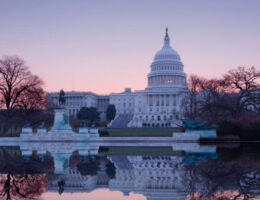On 6 October 2025, Governor Gavin Newsom announced that California enacted a series of laws that included an amendment to California’s antitrust statute, the Cartwright Act. He declared that the series of bipartisan legislation “further protects families by creating stronger consumer protections and increasing affordability.” Specifically, the antitrust amendment prohibits the use or distribution of “common pricing algorithms” that rely on competitor data or facilitate coordinated pricing. Two days later, Governor Newsom signed a second bill into law dramatically increasing penalties for Cartwright Act violations—raising corporate criminal fines, individual criminal fines, and giving courts discretion to apply civil penalties for misconduct.
The Department of Justice’s (DOJ) Antitrust Division (“Division”) has launched the Task Force on Health Care Monopolies and Collusion. This new Task Force, made up of lawyers, economists, industry experts, data scientists, and technologists from across the Division, will work on investigations and policies across the healthcare space. In particular, the Task Force will focus on consolidated markets, particularly where business operations affect customer care, the use of healthcare data, labor issues, and technology services in the healthcare space.
The Department of Justice’s (DOJ) Antitrust Division has launched the Task Force on Health Care Monopolies and Collusion. This new Task Force, made up of lawyers, economists, industry experts, data scientists, and technologists from across the Division, will work on investigations and policies across the healthcare space. In particular, the Task Force will focus on consolidated markets, particularly where business operations affect customer care, the use of healthcare data, labor issues, and technology services in the healthcare space.
In a notable turn of events, the Federal Trade Commission announced that it would abandon its in-house post-consummation challenge of the 2018 acquisition by Axon Enterprise, Inc. of VieVu, LLC. The FTC’s decision follows a recent adverse ruling from the Supreme Court, which held that parties are entitled to assert constitutional challenges against the FTC before being required to participate in its administrative proceedings. Following the Supreme Court’s decision, the FTC is likely to confront more challenges when pursuing enforcement actions—including, in particular, merger challenges—through its in-house administrative proceedings.



